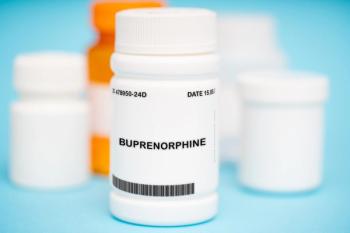
AMA to FDA: Regulate hormone compounding
In a move that surprised both compounding proponents and advocates, the American Medical Association Board of Trustees adopted a resolution calling for Food & Drug Administration oversight of pharmacy-compounded bioidentical hormones. The resolution, which, according to sources at the AMA, passed with little opposition, also included an amendment that called on the FDA to regulate the use of the term bio-identical hormones.
The AMA resolution is broad-reaching. In addition to calling for FDA oversight and limits on the use of the term bioidentical hormones, the group also called for the FDA to create a registry of adverse events and the development of uniform warning for bioidentical hormone products.
"There is no scientific basis for claims that compounded-hormone therapies have a different risk-benefit ratio than FDA-approved hormone replacement therapies," said AMA board member Ardis Hoven, M.D., in a written statement. "Confidence in the safety and effectiveness of the therapies patients take is absolutely essential for both patients and physicians," Hoven went on to explain. "New FDA policies that would require manufacturers and compounding pharmacies to provide adverse event information on compounded bioidentical hormones-and share the warnings and precautions with patients on the drug label-will help patients and doctors make better informed decisions on the course of treatment."
The resolution was originally proposed jointly by The Endocrine Society, the American Association of Clinical Endocrinologists (AACE), and the American Society for Reproductive Medicine at the 2006 interim meeting of the AMA house of delegates, held last month in Las Vegas. "To us, it is very much about drug safety issues," explained Richard Hellman, M.D., president-elect of AACE. Our concern is that the FDA seems at times not to be as focused on drug safety as they should be."
One of the underlying issues is the long-running controversy surrounding bioidentical hormone replacement therapy (BHRT) and the efforts of synthetic hormone manufacturer Wyeth Pharmaceuticals to get the FDA to regulate BHRT. Bioidentical hormones are identical in chemical structure to the hormones produced by the human body. BHRT, which is often used by women during menopause, is sometimes referred to as "natural" hormone therapy. In a statement issued after the ruling, IACP charged that each of the medical groups that introduced the resolution received "at least several hundred thousand dollars in funding from Wyeth."
"I really do not know whether Wyeth has contributed money," replied Hellman. "I think the principle is that someone should check your work." Larry D. Sasich, Pharm.D., who is acting chair of the department of pharmacy practice at LECOM School of Pharmacy and a critic of pharmacy compounding procedures, agreed. He sees little difference between Wyeth and the compounding pharmacies. "The difference is that Wyeth has been forced to follow the rules," he contended. "Drug manufacturers were dragged into the modern era and, without laws governing drug safety, the pharmacy industry would still be pushing products that haven't been tested for safety and of unknown quality."
Sasich bemoans the lack of concern over compounded pharmacy manufacturing conditions and medical claims from the larger pharmacy industry. "Unfortunately, I expected that the broad questions would come from medicine and not from pharmacy," he added. Sasich and Hellman both look to the FDA for "true disinterested oversight" and dismiss the ability of state boards of pharmacy to offer consistent oversight. "I think the FDA has to become more involved, and it will be in the public interest if it does," Sasich concluded.
Newsletter
Pharmacy practice is always changing. Stay ahead of the curve with the Drug Topics newsletter and get the latest drug information, industry trends, and patient care tips.























